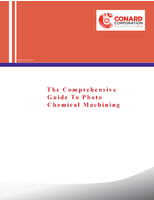Microcontrollers offer 64-256 Kbytes embedded flash memory.
Share:
Press Release Summary:
Series HCS12, 16-bit pin-compatible devices offer 25 MHz performance, code efficiency, on-chip debugging capability, and code compatibility with company's 68HC11 and 68HC12 architectures. Products enable design engineers to produce re-programmable automotive and industrial electronics using off-the-shelf flash microcontrollers. Offerings include one Kbyte EEPROM, 4 Kbytes RAM, communications port, and 16-channel, 10-bit analog-to-digital converter.
Original Press Release:
Motorola Expands 16-Bit HCS12 Family Flash Options
Three new derivatives offer pin compatibility and scalability for industrial, consumer and automotive OEMs
AUSTIN, Texas - December 2, 2002 - Many original equipment manufacturers (OEMs) offer multiple models of a product or system, each with different features and price points. Being able to do this without completely redesigning the underlying system results in significant time and cost advantage. Enabling customers to scale from low-end to high-end models with minimal redesign, Motorola Inc.'s (NYSE: MOT) Semiconductor Products Sector today introduced an extension of three new pin-compatible devices in its HCS12 microcontroller (MCU) family.
Each new 16-bit MCU includes 64K bytes of flash memory program storage. Now, customers can select among pin-compatible HCS12 devices with 64K bytes up to 256K bytes of embedded flash memory. All HCS12 devices offer 25 MHz performance, code efficiency, on-chip debugging capability and code compatibility with Motorola's 68HC11 and 68HC12 architectures, giving existing Motorola customers a logical next step to higher performance microcontrollers.
"The HCS12 family, which already has more than one billion dollars in automotive design wins, now includes more than 14 derivatives," said Paul Grimme, corporate vice president and general manager of Motorola's 8/16-Bit Products Division. "The products introduced today enable design engineers to design fast, re-programmable automotive and industrial electronics using off-the-shelf flash microcontrollers."
Product Features
The HC9S12A64 is targeted for applications such as instrumentation, energy management, robotics, industrial control and security systems. The HC9S12D64 and HC9S12DJ64 are ideal for automotive body electronics as well as industrial control applications. Each device includes:
o 25 MHz HCS12 core (40 ns minimum instruction cycle)
o 64K bytes Flash memory
o 1K bytes EEPROM (byte-erasable)
o 4K bytes of RAM
o 16-channel, 10-bit analog-to-digital converter (ADC)
o 8-channel, 16-bit timer with capture and compare
o 4-channel, 16-bit or 8-channel 8-bit pulse width modulator (PWM)
o One synchronous serial peripheral interfaces (SPI)
o Two asynchronous serial communication interfaces (SCI)
o One I2C communication port (IIC)
o Low electromagnetic emissions and RF noise susceptibility
The HC9S12D64 also includes:
o One mega-bit per second, CAN 2.0 A, B software-compatible module (MSCAN12)
The HC9S12DJ64 also includes:
o One Byte Data Link Controller (BDLC) serial communication module for the J1850 vehicle communication protocol
All of Motorola's Flash MCUs are in-circuit and in-application programmable and are designed to give customers the flexibility to program late in the manufacturing cycle and make upgrades remotely in the field. The newest HCS12 devices feature Motorola's third-generation Flash memory* technology, offering fast programming times (16-bits in as low as 20 microseconds), flexible block protection and security features to help guard customers' intellectual property contained in software code.
Existing users of the HCS12 architecture, which is optimized for C language, have reported up to 50 percent increase in code efficiency over other 16-bit architectures. A key benefit of higher code efficiency is the requirement for less memory - either integrated onto the MCU or stand-alone - that can result in reduced component count and overall reduced system costs.
HCS12 Development Tool Support
The Background Debug(tm) Mode (BDM) on HCS12 MCUs uses a single-pin interface and is engineered to enable real-time, non-intrusive, in-circuit emulation without traditional emulator limitations related to speed, voltage, capacitance or mechanical interfaces. Embedded system design engineers may emulate a system in real time while viewing and modifying memory. This allows tuning of system performance by monitoring results and changing parameters.
To ease application development, evaluation and debug, Motorola offers a number of development tools, such as simple, cost effective BDM emulators, kits for code development and evaluation and stand-alone programmers. HCS12 development tools include Metrowerks(R) CodeWarrior(TM) Integrated Development Environment for HCS12, BDM Multilink and evaluation boards, all of which can help designers rapidly design, compile, assemble and debug new applications.
Price and Availability
The HC9S12A64, HC9S12D64 and HC9S12DJ64 are available now in a 112-lead low-profile quad flat package (LQFP) or 80 LQFP and are available to order on www.motorola.com/mcu. Suggested list prices range from $7.00 to $8.30 (USD) for 1,000 or fewer pieces.
About Motorola
As the world's #1 producer of embedded processors, Motorola's Semiconductor Products Sector creates DigitalDNA(TM) system-on-chip solutions for a connected world. Our strong focus on wireless communications and networking enables customers to develop smarter, simpler, faster and synchronized products for the person, work team, home and automobile. Motorola's worldwide semiconductor sales were $4.9 billion (USD) in 2001. www.motorola.com/semiconductors
Motorola, Inc. (NYSE:MOT) is a global leader in providing integrated communications and embedded electronic solutions. Sales in 2001 were $30 billion. www.motorola.com/
*The new HCS12 products incorporate SuperFlash® technology licensed From SST.
MOTOROLA and the Stylized M Logo are registered in the US Patent & Trademark Office. All other product or service names are the property of their respective owners. (c) 2002 Motorola, Inc.




